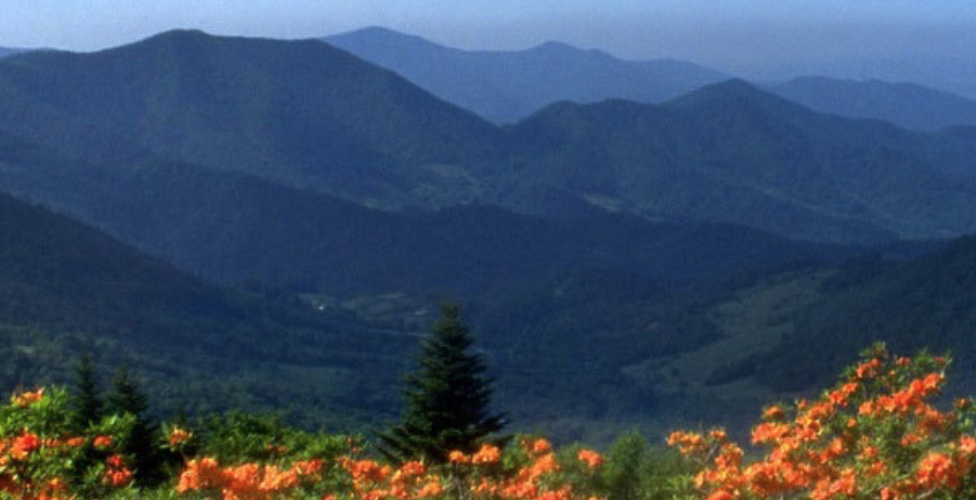Thank God for Evan Mandery and professors like him.
Mandery, the author of A Wild Justice: The Death and Resurrection of Capital Punishment in America, sought a better understanding of conservatives in America, and that led him to apply to teach somewhere other than the John Jay College of Criminal Justice, where he is a professor. He has written about the experience in “What Teaching Ethics in Appalachia Taught Me About Bridging America’s Partisan Divide,” published online Oct. 13 by Politico Magazine.
Other than a quick introduction to a classroom exercise of Mandery asking his students to sacrifice one of their classmates for a guaranteed A, he begins on a self-effacing note: “Finding a place to teach ethics in the South was more difficult than I had imagined. My initial idea was to go to the most remote school that would have me, but most don’t even offer an ethics course. … When I stumbled upon Appalachian State, the school immediately seemed like a good fit — open to me and the kind of conversation I wanted to foster.”
Mandery escalates the theoretical stakes with his students by presenting the trolley dilemma, which has elsewhere morphed into a lesson in Christian apologetics.
Mandery has not come to Appalachia to teach students what to think, but how to listen carefully and, as a result, how to think with greater empathy. This teacher wants to learn as well:
In the aftermath of the 2016 election, I read widely — and somewhat unsatisfyingly — to try and understand the root causes of polarization. J.D. Vance’s Hillbilly Elegy moved me, and it’s impossible to read George Packer’s The Unwinding, which takes place largely in North Carolina after the Great Recession, without being unsettled by the coming apart of bedrock American institutions. But nothing I read fully explains the mistrust — daresay hatred — that has evolved between liberals and conservatives.
Coming in, I assumed some of my students would reflect the conservatism of the surrounding region and others the liberalism generally prevalent among college students. What I didn’t know is whether my students — and young people generally — are predestined to sort themselves into those mutually loathing tribes, or if a shared conversation about foundational ethical beliefs could alter their views of people with whom they disagree.
I will leave most of the narrative to Mandery, largely because he tells the story so well. I find it significant that even in this piece of advocacy, he does more reporting — more observing and more talking to other people — than is now common in journalism about such volatile issues as abortion, gun control and the death penalty.
I loved these paragraphs that provide a brisk sense of place:
“App,” as the students call it, was founded in 1903 by a Confederate veteran and his brother in Boone—a remote community in the Blue Ridge Mountain highlands that had been pillaged by Union soldiers, a wound from which its economy never fully recovered. Their ambition was to train public school teachers in the so-called “lost provinces.” Today, the college is part of the University of North Carolina system with 17,000 students, approximately 86 percent of whom are from the state.
On the surface, App possesses all the hallmarks of the American academy—a grassy quad framed by a student union, dining hall and library. Kiosks beckon students to concerts and club meetings. But underground run a pair of pedestrian tunnels, connecting the east and west campuses, that have been designated as free speech havens. These dank passageways are filled with graffiti—most of the messages are positive, but the students tell me that a swastika was painted there last October and then quickly painted over by other students. When I visit, the space feels sinister, but also strangely healthy—a messy marketplace of ideas that I like to think portends open-mindedness.
Boone feels like any other college town. Ambling down the main drag—King Street—wafting incense lures me into the Dancing Moon Earthway Bookstore, where I peruse an impressive collection of paranormal titles and herbal teas. The store hosts Thoughtful Thursdays and a poetry circle. The centerpiece of the “Boone Mall” is Anna Banana’s consignment shop and the place to eat is the F.A.R.M Cafe (Feed All Regardless of Means), a locally-sourced community kitchen where customers pay what they can.
But Boone is a little blue island in a sea of red. You’d have to drive about 30 miles to find another polling district that voted for Hillary Clinton, and there are only a total of five within a 75-miles radius. The district’s eight-term incumbent Congresswoman, Virginia Foxx, opposes abortion, co-sponsored legislation to end birthright citizenship and said the nation had more to fear from Obamacare than from any terrorist.
He also draws lessons from Carol Gilligan of New York University, Michael Sandel of Harvard, Jesse Graham of the University of Utah, Donna Kaplowitz of Michigan State University and the trio that founded Civil Politics (Ravi Iyer, Jonathan Haidt and Matt Motyl).
“We teach people that it’s impolite to discuss religion and politics in public,” Mandery writes near his conclusion. “It’s wrong. We need to teach people how to discuss religion and politics.”
I’ve seen enough failed experiments in sympathetic listening to be cautious about just how much it will change. But the discipline Mandery teaches is sure to decrease the number of indignant trolls on social media, and there’s inherent value in that.
Photo: Bookstore AppState by Emory Maiden/Flickr











